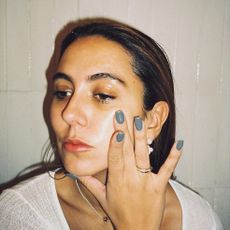17 Ways to Stop Online Dating From Ruining Your Mental Health

To put it bluntly, dating can be rough. It's definitely not the easiest thing to navigate and it takes a lot of effort. You might experience a myriad of emotions while exploring this whole world: frustration, excitement, confusion, happiness, disappointment, jealousy… It's a lot and can really take a toll on your mental health.
To add to that, a lot of dating happens through the internet now—whether we're talking about dating websites or apps. And that opens a whole other set of potential issues or stressors. Catfishing can happen. Yes, people can be shady and untruthful if you meet them in person, but the online aspect makes it easier for someone to lie or mislead. And because you're essentially swiping or liking someone based on their photos and a couple of sentences, it can feel shallow or superficial at times. Plus, while it's nice that online dating provides you with a bunch of potential matches (and maybe you might meet people you never would have crossed paths with IRL), having so many options might make some people noncommittal because they might always be looking to see if they can find someone "better." And those are just some of the pitfalls of online dating you might encounter.
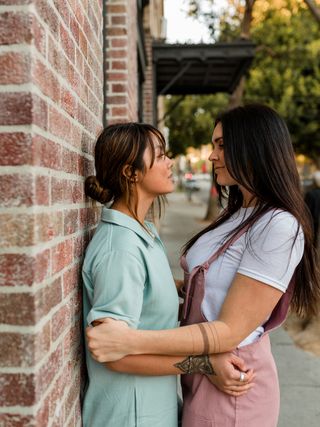
So yeah, dating, and online dating especially, can feel bleak. But even though I just listed all these terrible things, it's not all a dumpster fire. I know (and you probably do, too) a lot of people who have found their significant others through the apps. Personally, I met my boyfriend on an app after so many disastrous matches, awkward dates, and pseudo-relationships. I still don't understand how it happened and I do think it's all luck and timing, but it can work. And there are things you can do to make navigating it all more manageable for you so you're able to go on quality dates and maybe embark on a relationship (if that's your goal).
One thing that always got to me when I was deep into online dating (it felt like a full-time job sometimes, I swear), was how hard it could be on my mental health. It really did feel like a rollercoaster—I would be so excited about matching with some cute guys and the possibility of going on dates with them, but then I would either get noncommittal people who would never want to set up a date, or I'd go on a date and it was a dud, or I'd get ghosted.
And because online dating is a lot about your profile, sometimes it would really take a toll on my self-esteem. I like to think that I have a pretty good sense of self and I'm confident with who I am, but I'd second-guess myself and wonder if I was attractive enough. When I was going on dates with guys from the apps, I'd also experience moments of jealousy, anxiety, and depression. I'd wonder how many other people they were seeing. I'd take it so personally if someone ghosted me or rejected me. I'd go on dates with people I knew were totally wrong for me just to go on dates. I would have manic-like bursts of nonstop swiping because I'd feel desperate that I'd never find someone. Yeah, I had moments where I'd neglect my mental health best practices.
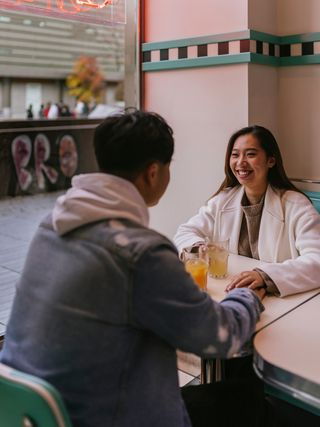
I don't think I'm alone in saying that online dating could do some damage to your mental health if you're not putting in the work to take care of yourself. The good news is that mental health, in general, seems to be a priority for many people these days. So there are people out there who will support your mental health needs and priorities. "Dating is already an anxiety-provoking activity," explains Logan Ury, Hinge's director of relationship science and author of How to Not Die Alone.
"Add to that the stress and uncertainty of the last year, and it's no surprise that prioritizing mental health has gone from being stigmatized to a must-have. A majority (78%) of Hinge daters say they are taking steps to invest in their mental health—from working out more to limiting time on social media. 29% of users say they're seeing a therapist/mental health professional to help them cope. Enter the age of enlightened dating. Singles are focusing on their mental health and want to date someone who has also done the work and invested in themselves."
And another positive finding? Many people have become more intentional on the apps, especially for Hinge users over the last two years in the pandemic, according to Ury. "They spent time alone thinking about who they are and what they want—and they're bringing that thoughtfulness to their love lives. Singles are more aware of their bad habits and are more committed to breaking them. We're also seeing singles who feel like they've lost time are now ready to commit. Seventy-five percent of Hinge users are looking for a relationship. Thanks to their newfound motivation and self-awareness, singles are more upfront early on about their expectations."
So, that's some good news. But what can you do to take care of your mental health while using the apps? I asked Ury and Wale Okerayi, LMHC, LPC, a therapist in the Frame Therapy Community, for their tips. These can apply to IRL dating, too. See below.
1. Focus on Yourself First
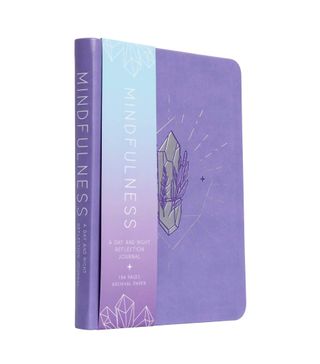
"My biggest tip for people who want to date with purpose is first to take the time to focus on yourself and reflect on what you want out of a relationship before jumping into the dating world," Ury recommends. "After self-reflecting and deciding on what you want, you should embrace the trend of 'hardballing.' Hardballing means someone is being clear about their expectations of a relationship from the beginning, whether you want a serious long-term partnership or a casual fling."
Once you prioritize what you are searching for, you may find that there are people who are looking for the same thing, Okerayi says. "It's also important to make sure that you actually like the person and they match what you are searching for in a partner, versus being unsure about their intentions even though they are showing interest in you or giving you attention," she adds.
2. Be Clear About Yourself and Your Expectations
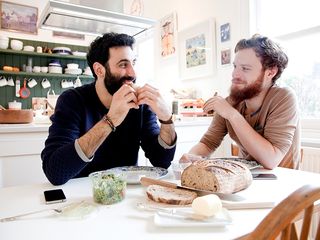
In general, dating involves putting yourself out there and being vulnerable. But it can be worth it. "The best way to protect yourself is to be clear and honest from the beginning about what you're looking for," Ury says. "You don't want to be six months into dating someone only to find out you're not on the same page. You don't even have to wait until the first date to say what you want. You can be upfront about what you're looking for on your profile. This will help you turn the right people on and the wrong people off."
3. Don't Rush

It's easy to get caught up in "timelines" of dating and marriage. But you shouldn't feel rushed. Ury says you should allow yourself to take your time and do it at your own pace.
4. Set Boundaries

Setting and maintaining your boundaries will help. "Don't push yourself to talk about certain things that make you feel uncomfortable just to try to establish a feeling of closeness," Okerayi says. "Check in with yourself while in conversations to see if you are feeling comfortable and if not, maintain your boundaries and shift the conversation."
5. Set Time Limits
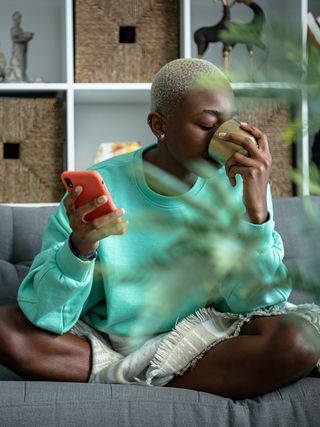
It's easy to spend hours and hours swiping or liking on dating apps. Set some limits and boundaries there. "Scrolling for hours can take a toll on your mental health and even alter your expectations and impact your self-esteem," Okerayi says.
6. Be Compassionate With Yourself
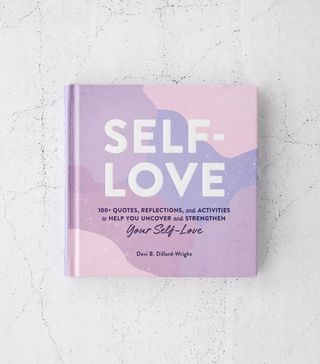
"Learn to be your own cheerleader. If you feel like you've hit a wall, know that you are not alone and encourage yourself to keep going," Ury says.
7. Post Pictures That Make You Feel Most Like Yourself
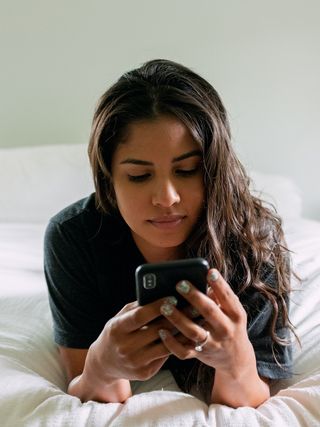
"Pick pictures that make you feel confident and grounded in who you are," Okerayi suggests. We all have those photos that we know we're looking good in and that showcase our personality well—so post those so you can be your most authentic self.
8. Check In Often
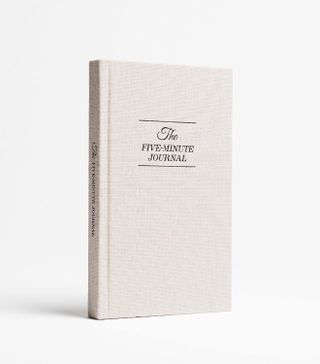
Do a lot of checking in on yourself to find out how you're feeling when using the apps. "Ask yourself questions like: Am I still feeling confident? Is this still fun for me or does it feel like a chore? Am I overwhelmed or anxious?" Okerayi recommends.
9. Don't Compare

Or as Ury puts it: "Don't compare and despair." She warns against getting caught up with comparing others around you—your relationship will unfold at its own pace. Knowing that can take the pressure off.
10. Affirm Yourself
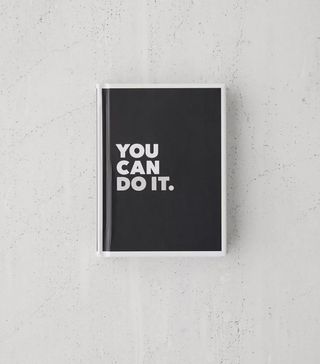
"Affirm yourself even when things aren't going in the direction that you are hoping for," Okerayi says. "Dealing with rejection or being ghosted can take a heavy toll on us mentally; one way to push past those things is to write out some affirmations about yourself and repeat them often. Some examples of affirmations while dating can be: 'I know what I want and I don't have to compromise,' 'I am whole and complete even without a partner,' 'I am confident in who I am.'"
11. Introduce the Topic of Mental Health If That's Important to You
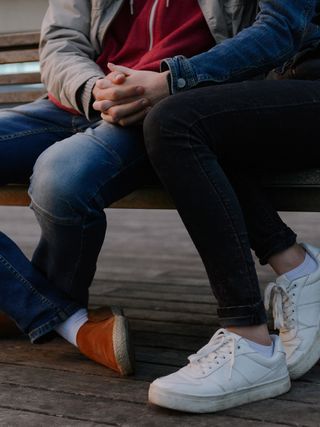
"Talking about mental health has gone from being stigmatized to a must-have," Ury explains. "86% of Hinge users say they are more likely to go on a second date with someone who mentioned on the first date that they go to therapy. Yet only 7% feel comfortable bringing up therapy on the first date."
If you want to talk about mental health, Ury says you can ease into the conversation by announcing how awkward you feel, which alerts the person to the face that you feel vulnerable. That can help elicit a more empathetic response. She recommends saying something like: "I feel awkward bringing this up, but the last two years have been tough, so I've been investing more in my mental health. After some false starts, I found a great therapist last year. What about you?"
12. Remind Yourself That Not Everyone Is the Same
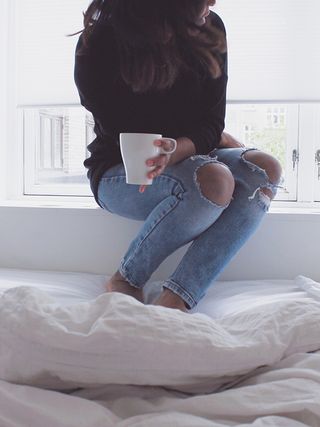
It can be easy to feel so jaded by online dating and just assume that every person is flaky or will ghost you and not give them a chance. But it's important to start with a clean slate, so to speak, while also remembering all the lessons you've learned. "A good way to deal with setbacks or disappointment is to remind yourself that this interaction does not represent every person that you will date," Okerayi says. "An actionable step to take is to utilize positive affirmations. There are a lot of reasons why this setback could have happened but that doesn't mean that there is something wrong with you as a person."
13. Focus on What You've Learned
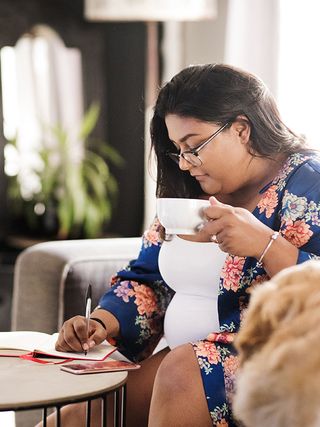
And speaking of disappointments, Ury says it's essential to not allow them to discourage you. One way you can deal with that is by focusing on what you can gain from the experience. After you think about that, Ury says you can move on and save your energy for someone genuinely interested in you. "If you need to take a break from dating, take the time to reflect and return with a fresh perspective," she says.
14. Spend Time With People Outside of the Apps
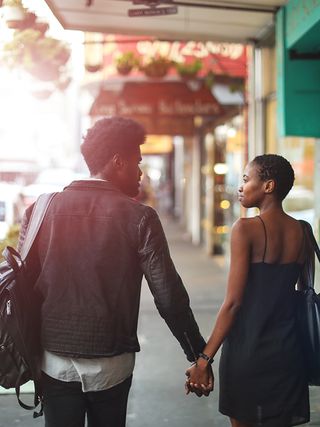
When you connect with someone on the apps, make sure to take it offline when you feel comfortable. This can help you manage feelings of jealousy or anxiety. "You can honor these feelings by continuing to get to know the person on a deeper level outside of the apps when you feel comfortable," Okerayi says. "These feelings come up because of a lack of trust and in order to be able to build trust with a person, it requires spending time together and having deeper conversations."
15. Watch Out for Red Flags
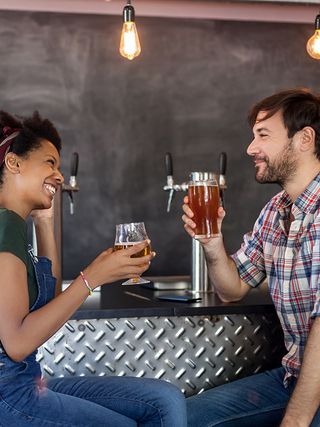
And when you do go on dates, make sure you are paying attention to those red flags or anything that might cross your boundaries. "Some red flags can be lying, inappropriate topics, controlling behavior, jealousy, and love-bombing," Okerayi explains. "If you feel like these traits are showing up, it is important to honor your intuition and prioritize yourself."
16. Find Mental Health Strategies That Work for You
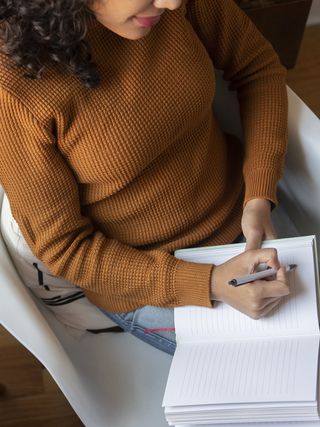
And while you're dating online, don't forget to use the mental health strategies that best suit your needs. "Invest in your mental health in a way that works for you. Whether that's working out more, talking to a mental health professional, or limiting your time on social media, do what makes you feel best," Ury says.
17. Take Time Off If You Need It
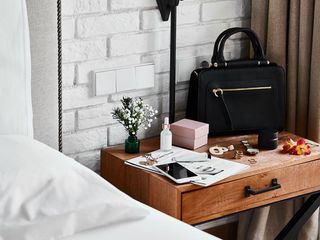
It's okay to take a break. "Dating will always be there when you get back," Ury says.
Next: 10 Things to Do If You're Feeling Lonely, According to Therapists
Disclaimer
This article is provided for informational purposes only and is not intended to be used in the place of advice of your physician or other medical professionals. You should always consult with your doctor or healthcare provider first with any health-related questions.
Sarah is lifestyle writer and editor with over 10 years of experience covering health and wellness, interior design, food, beauty, and tech. Born and raised in Los Angeles, she attended New York University and lived in New York for 12 years before returning to L.A. in 2019.
In addition to her work on THE/THIRTY and Who What Wear, she held editor roles at Apartment Therapy, Real Simple, House Beautiful, Elle Decor, and The Bump (sister site of The Knot).
She has a passion for health and wellness, but she especially loves writing about mental health. Her self-care routine consists of five things: a good workout, “me” time on the regular, an intriguing book/podcast/playlist to unwind after a long day, naps, and decorating her home.
-
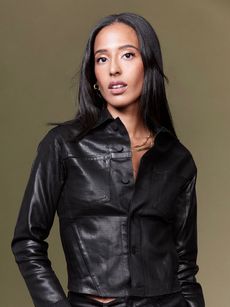 This Founder Shares Why We Should Start Celebrating Rest
This Founder Shares Why We Should Start Celebrating RestBurnout is nothing to be proud of.
By Kia Topps
-
 Why Dr. Deepika Chopra Believes that Optimism is Resiliency
Why Dr. Deepika Chopra Believes that Optimism is ResiliencyWhy you should start embracing every feeling.
By Kia Topps
-
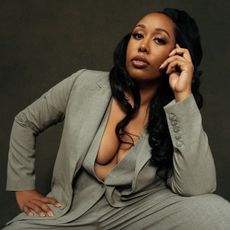 How TikTok's Favorite Photographer Helped Me Find My Confidence
How TikTok's Favorite Photographer Helped Me Find My ConfidenceI renewed my relationship with myself.
By MacKenzie Green
-
 11 Things to Do If You're Dealing With Anxiety at Work
11 Things to Do If You're Dealing With Anxiety at WorkThese can help.
By Casey Clark
-
 Here's Why I Make Time for "Play" Every Day—and Why You Should Too
Here's Why I Make Time for "Play" Every Day—and Why You Should TooIt's one of the best things you can do for yourself.
By MacKenzie Green
-
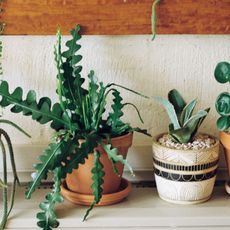 How to Choose a Plant Based on Your Personality Type
How to Choose a Plant Based on Your Personality TypeDo you have a green thumb?
By Sarah Yang
-
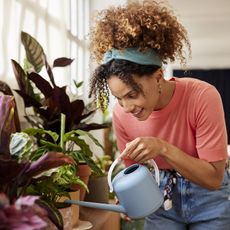 If You're Super Stressed Out, These 17 Things Can Make You Feel Better
If You're Super Stressed Out, These 17 Things Can Make You Feel BetterTry them.
By Sarah Yang
-
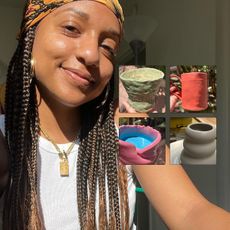 I Tried Pottery Classes as a Way to Better My Mental Health—Here's What Happened
I Tried Pottery Classes as a Way to Better My Mental Health—Here's What HappenedI left my classes with more than I bargained for.
By Kia Topps

